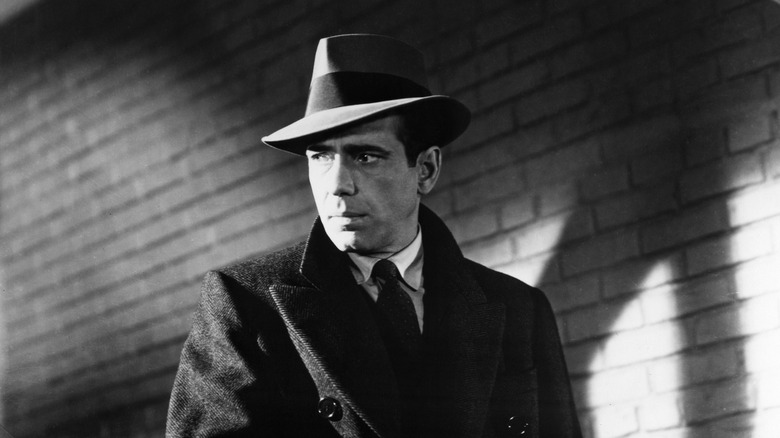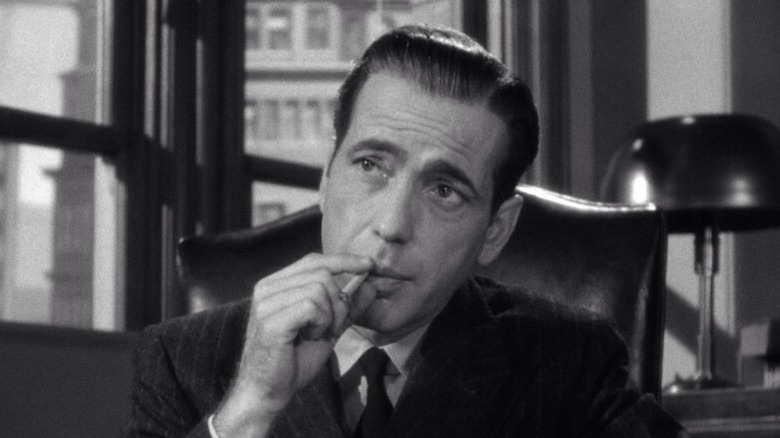How A Humphry Bogart Prank Shaped The Noir Genre
I'm a huge fan of noir films, and a large part of that is due to seeing Humphrey Bogart in "The Maltese Falcon" in my college film class. "Falcon" has elements that would become a staple of future noir films; the lovely yet deadly femme fatale, the world-weary private investigator, and a story that ultimately ends in tragedy. Bogart would continue to embrace the world of noir in other roles, including Phillip Marlowe in "The Big Sleep" and Rick Blaine in "Casablanca." Out of all the noir elements "The Maltese Falcon" popularized, one ended up being the result of Bogart and his co-stars playing a clever prank.
The Austin Chronicle wrote up a brief history of "The Maltese Falcon" prior to an outdoor screening by the Alamo Roadshow (now known as Alamo Drafthouse Cinemas, which to this day is one of the most popular theater chains in America — and one I need to visit). Included in that history was the revelation that Warner Bros. head Jack Warner put a moratorium on the depiction of smoking in films in 1941. Warner thought that moviegoers would constantly be sneaking out to smoke in the library if they saw characters lighting up a cigarette on screen. Back in the '40s, smoking was the norm; cigarettes were relatively cheap and tobacco companies used slogans such as "More doctors smoke Camels than any other cigarette" — rather ironic, given how doctors will now warn about the toxic effects of cigarettes.
Smoke 'Em If You've Got 'Em
Putting aside that "people will smoke if they see people smoking in movies" is a strain of logic that's rather similar to "video games will cause people who play them to become more violent," it inspired Bogart to have a little fun at Warner's expense. Bogart, along with his co-stars Peter Lorre and John Huston, decided to smoke whenever they could on the set of "Falcon". This obviously flew in the face of Warner's policy, but it also had an unintended side effect: numerous scenes have a character firing up a cigarette, with the smoke adding tension to an already tense setting.
A key example is when Spade and Detective Tom Polhaus (Ward Bond) confront a suspect. When said suspect attempts to threaten them, Spade takes a long drag of his cigarette, not saying a word. That single action is both menacing and thoughtful, as Spade is weighing his actions.
To this day, characters in noir films will often partake in a cigarette before a key piece of information is revealed to the audience-or a character meets a grisly fate. This can be seen in film classics including "Chinatown", and even more recent entries into the genre such as Guillermo del Toro's "Nightmare Alley." And it's all thanks to Humphrey Bogart deciding to put one over on his boss.

